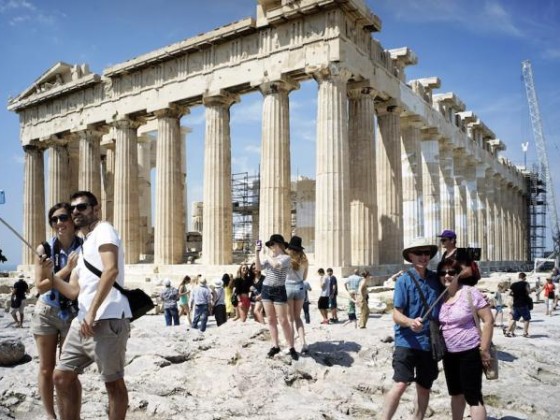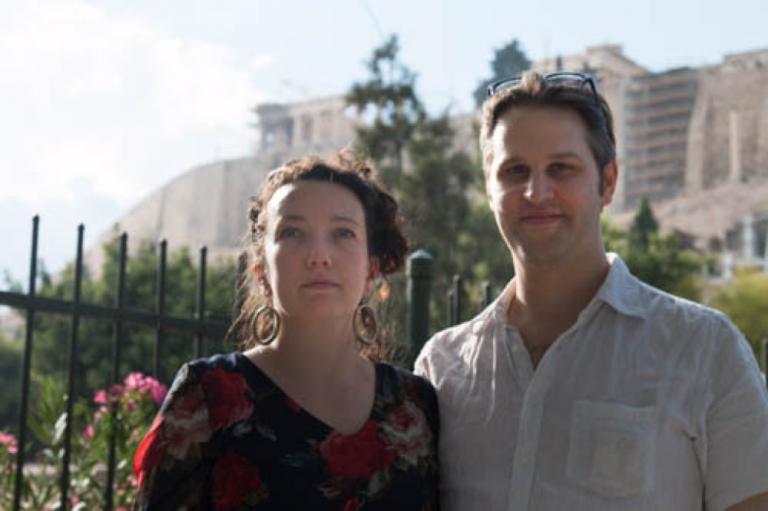ATHENS, Greece — Greek civilization may be falling apart, but you wouldn’t know it at the Acropolis.
The weary locals are supposed to vote Sunday on whether the country should accept more harsh conditions for aid money.
And meanwhile, here at Athens’ ancient hilltop citadel, tourists from around Europe are wandering happily, seeming oblivious to the chaos that could ultimately threaten the very future of the European Union.






